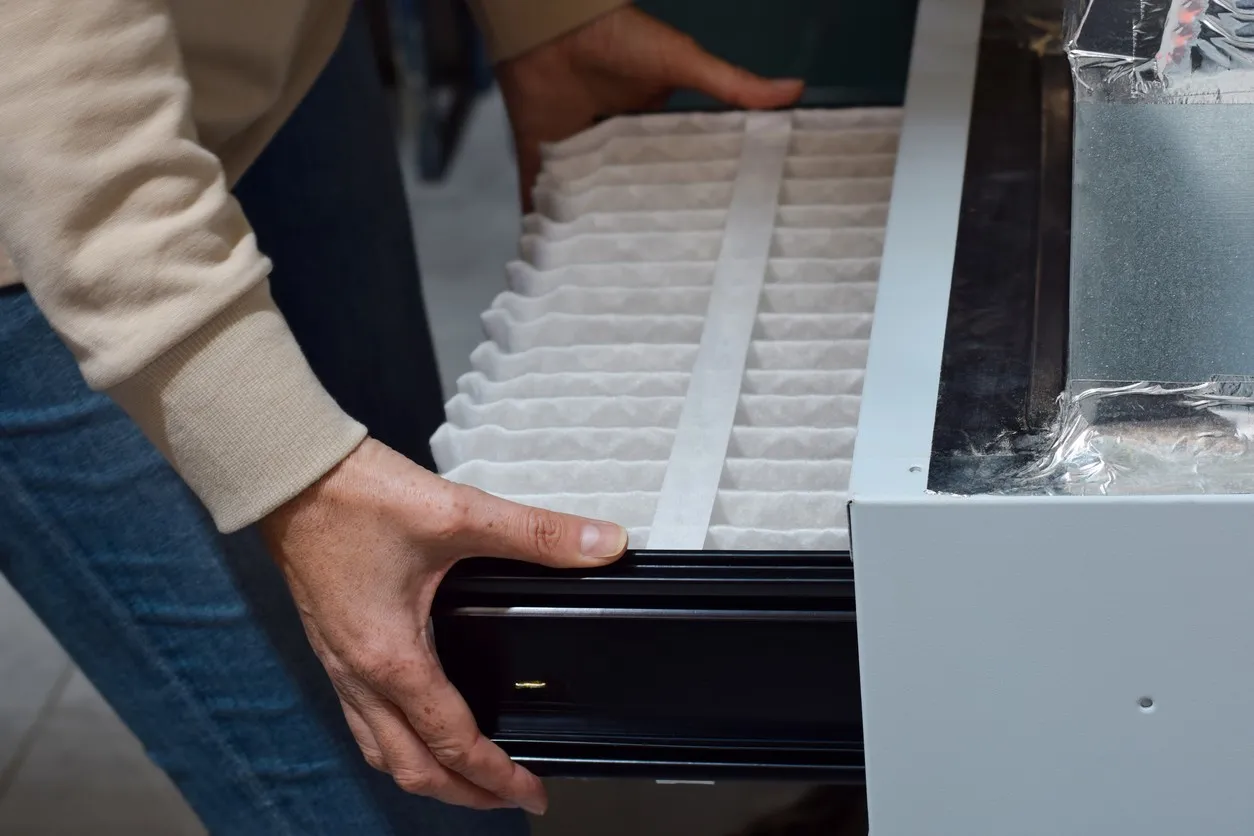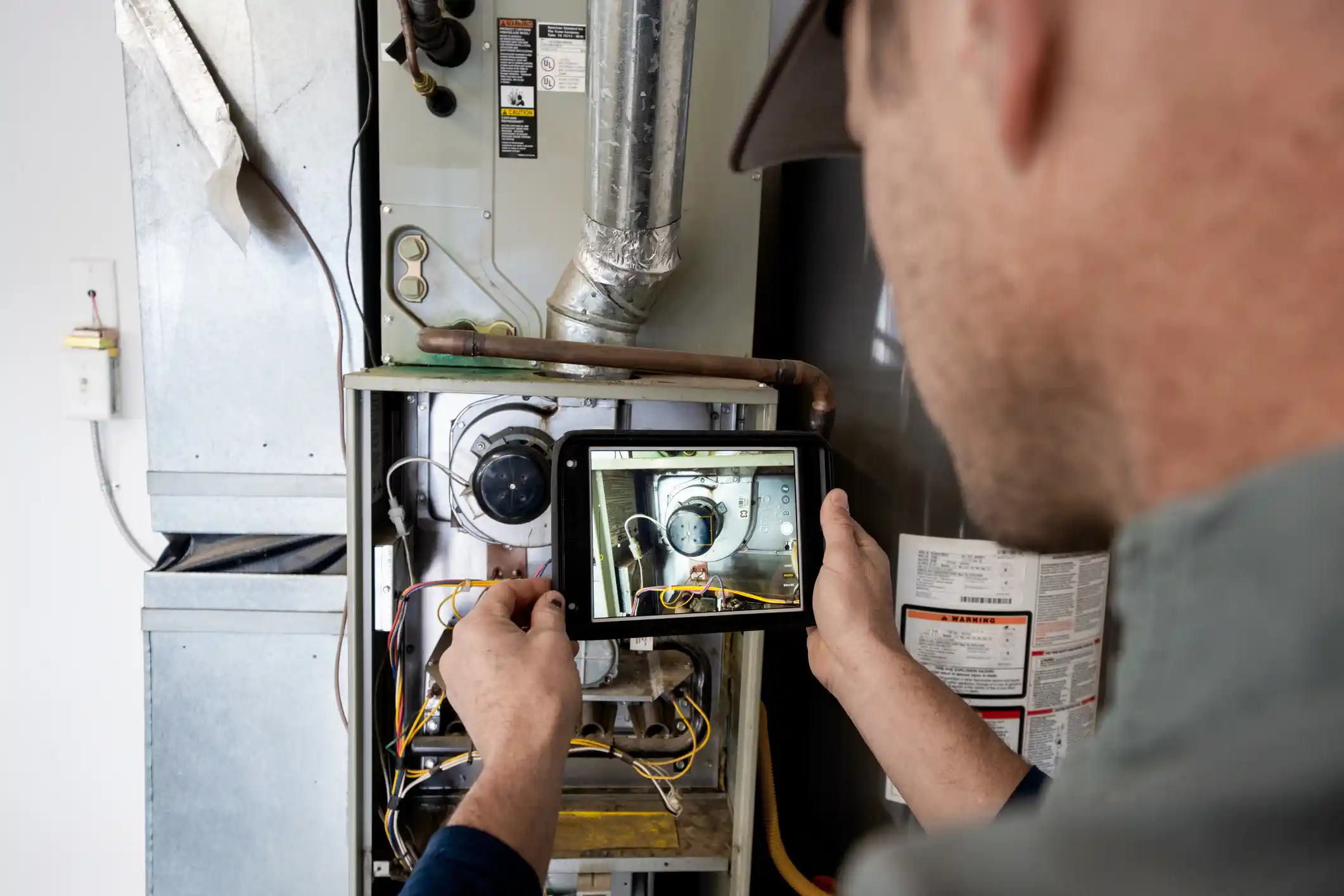Choosing the Right HVAC Air Filter: MERV Ratings Explained
When I search for the best HVAC air filters using MERV ratings, I ensure quality and efficiency. Join me to enhance your indoor air quality effectively.

How can we help today?
Choose an option to see quick actions and get help faster.Dealing With Furnace Odors: What Different Smells Indicate
Learn how to identify and respond to unusual furnace smells. Get expert help with furnace repair in Bowling Green to stay safe and comfortable.
A strange smell coming from your furnace isn’t just unpleasant—it’s often a sign that something within the system may be off. Furnace odors usually don’t show up without a cause. Whether it smells like something is burning or there’s a musty scent in the air, taking note of these odors and acting quickly can prevent bigger issues from forming. Homeowners in Bowling Green should know what different smells can mean and what steps to take when they happen.
Ignoring furnace odors may lead to more than just discomfort. Certain smells could point to dangerous problems that affect indoor air and even household safety. With heating systems playing a vital role from fall through early spring, it's important to spot warning signs early and respond before the issue grows. Staying aware helps maintain reliable heat, better air quality, and peace of mind during the colder months.
Furnace smells can vary, and each one often comes from a different source. Some are harmless if addressed early, while others might need urgent attention. Understanding what different odors mean helps you figure out when to call our professionals for furnace repair in Bowling Green.
Here are some of the most common furnace odors:
1. Burning Dust Smell
- Often occurs the first time the furnace kicks on after being off for a while
- Caused by dust buildup burning off the heat exchanger
- Usually fades within a few hours but should not last longer than a day
2. Electrical or Metallic Smell
- May suggest overheating wires, motor failure, or a wiring issue
- Could point to problems in the blower or circuit board
- Should be checked promptly to avoid system damage
3. Gas or Rotten Egg Smell
- Could indicate a gas leak, which can pose serious risks
- Natural gas is treated with a scent to make leaks easier to detect
- Requires immediate evacuation and professional inspection
4. Musty or Moldy Smell
- Might come from mold growth in ductwork or around the coils
- May affect air quality and worsen existing breathing issues
- Common in homes with high humidity or clogged filters
5. Oil or Smoky Smell
- Can be tied to incomplete combustion in older oil furnaces
- Sometimes comes from a blocked chimney or vent pipe
- Needs a thorough inspection by our technicians
Each of these odors has a pattern, and some can be deceptively minor at first. For example, someone might notice a faint plastic smell when the furnace runs. While it could be harmless, like a new furnace coating burning off, it might also point to melting parts. These smells are often strong hints that a part of your system needs attention.
Recognizing when a smell is brief and manageable—or when it’s a sign of a larger issue—keeps your furnace efficient and your home safe. If an odor lingers or keeps returning, it's time to bring in our professionals for a deeper look.
Some furnace odors don’t just impact comfort. They may also signal risks tied to air quality and potential hazards. While a dusty scent can be normal during the first use of the season, others shouldn’t be taken lightly.
Certain smells, especially those linked to gas or chemicals, require fast action. Exposure over time, even at low levels, can affect health and make breathing harder, especially for those with asthma or sensitivities. A musty smell might not seem dangerous at first, but it could mean mold is forming somewhere airflow touches, such as inside vents or near evaporator coils.
More concerning is the rotten egg smell. This smell is an alert that leaking gas could be entering living areas. Natural gas on its own is odorless, but scent is added to help detect leaks quickly. Breathing in gas or carbon monoxide can have serious consequences, and these issues don’t always come with other warning signs outside of smell.
If you notice the following, it’s best to leave the area and contact help right away:
- Rotten egg or sulfur-like odor near the furnace
- Burnt plastic or wiring smell, especially if paired with flickering power
- Ongoing musty odor, particularly when paired with allergy flare-ups
- Symptoms like dizziness, headaches, or nausea after the heat runs
Prompt action helps reduce both immediate dangers and long-term impacts on indoor air. Staying aware of what furnace odors might mean can make all the difference in protecting your home environment through the Bowling Green heating season.
Keeping furnace odors from becoming a regular guest in your home starts with a few simple upkeep habits. Most smells come from small problems that build over time. Tackling those issues early helps avoid major repairs later and keeps your heating system running without surprises throughout the colder months.
Start by changing the air filter consistently. A clogged filter doesn’t just slow down airflow—it can trap moisture and dirt, which may lead to musty or burnt smells. In homes with pets, dust, or higher foot traffic, replacing the filter more often can make a difference. Cleaning around the return and supply vents is also important so that dust doesn’t settle, get drawn into the system, and create unpleasant odors.
In addition to regular cleaning, a yearly system check gives you a better view of what’s happening inside the furnace. Our technicians can find early signs of trouble, like dirt on burners, loose wiring, or vent clogs that may go unnoticed. These small fixes can prevent bigger problems, especially when it comes to smells that signal deeper mechanical issues.
Here are a few preventative steps to reduce odor problems:
- Change the furnace filter every one to three months
- Clean vents and floor registers regularly to prevent buildup
- Check for water leaks or corrosion around the furnace that may encourage mold
- Avoid storing paint, chemicals, or gasoline near the furnace
- Make sure the area around the furnace is aired out and debris-free
- Schedule a full inspection and tune-up before the start of the heating season
Doing these things helps lower the chances of mold, gas, or mechanical odors stemming from your HVAC system. It’s easier to prevent a smell than to deal with the costly fixes that sometimes follow.
Some furnace odors go beyond what basic cleaning or filter replacement can solve. If the smell is ongoing, comes back after you’ve addressed the area, or is strong enough to affect your comfort, it should be looked at right away. Odors tied to gas, burning plastic, or overheating parts can quickly become serious safety concerns.
There are specific signs homeowners in Bowling Green should not ignore. If a smell is present every time the furnace turns on or seems stronger when the system runs longer, these could be early warnings of deeper trouble. Waiting to see if the smell will go away on its own can lead to more damage and, in some cases, unsafe conditions in the home.
Common situations when it’s time to call our professionals include:
- A gas odor at any time, especially one that smells like rotten eggs
- Electrical or burning plastic smell that doesn’t stop when the system shuts off
- Strong musty smells located near vents, returns, or ductwork
- Any odor coming from an oil-burning furnace
- Headaches, dizziness, or nausea tied to furnace use
Our professionals are trained to find the source of these issues safely and make repairs before they get worse. If your furnace hasn’t had a professional inspection in over a year, it’s a good idea to schedule one—especially if you're starting to notice changes in smell or performance. Smells may seem easy to dismiss, but they often speak to larger conditions inside the system.
Furnace odors can be a helpful warning sign when something isn’t right inside your heating system. Whether it’s a burning smell from electrical issues or a musty scent that points to mold, each odor has something to say. Picking up on these signs early can limit how much time and money you spend on repairs—and more importantly, it helps keep your home safe.
For homes in Bowling Green, staying ahead of these issues through regular filter changes, annual inspections, and keeping the furnace area clean lowers the chance of odor-related problems. While some smells are harmless and short-lived, others should be checked fast to avoid health and safety risks. A little attention now goes a long way toward a quieter, cleaner, and more efficient heating season.
Carter Heating and Cooling can help ensure your home remains comfortable in Bowling Green. If you notice a persistent furnace odor or performance issues, our technicians can diagnose and fix the problem swiftly. Learn how our trusted furnace repair in Bowling Green service can restore safe, reliable heating throughout your home. For a quick estimate or to book a service visit, please contact us today.
Hear from your neighbors to see how our commitment to dependable service and lasting comfort has made a difference in their homes.

Ready to Transform Your Home?
Discover our exceptional home services tailored to meet your need and enhance your living space.


When I search for the best HVAC air filters using MERV ratings, I ensure quality and efficiency. Join me to enhance your indoor air quality effectively.


.webp)
Learn the early signs of furnace problems before they worsen and raise energy bills. Read now to protect your home and comfort.
